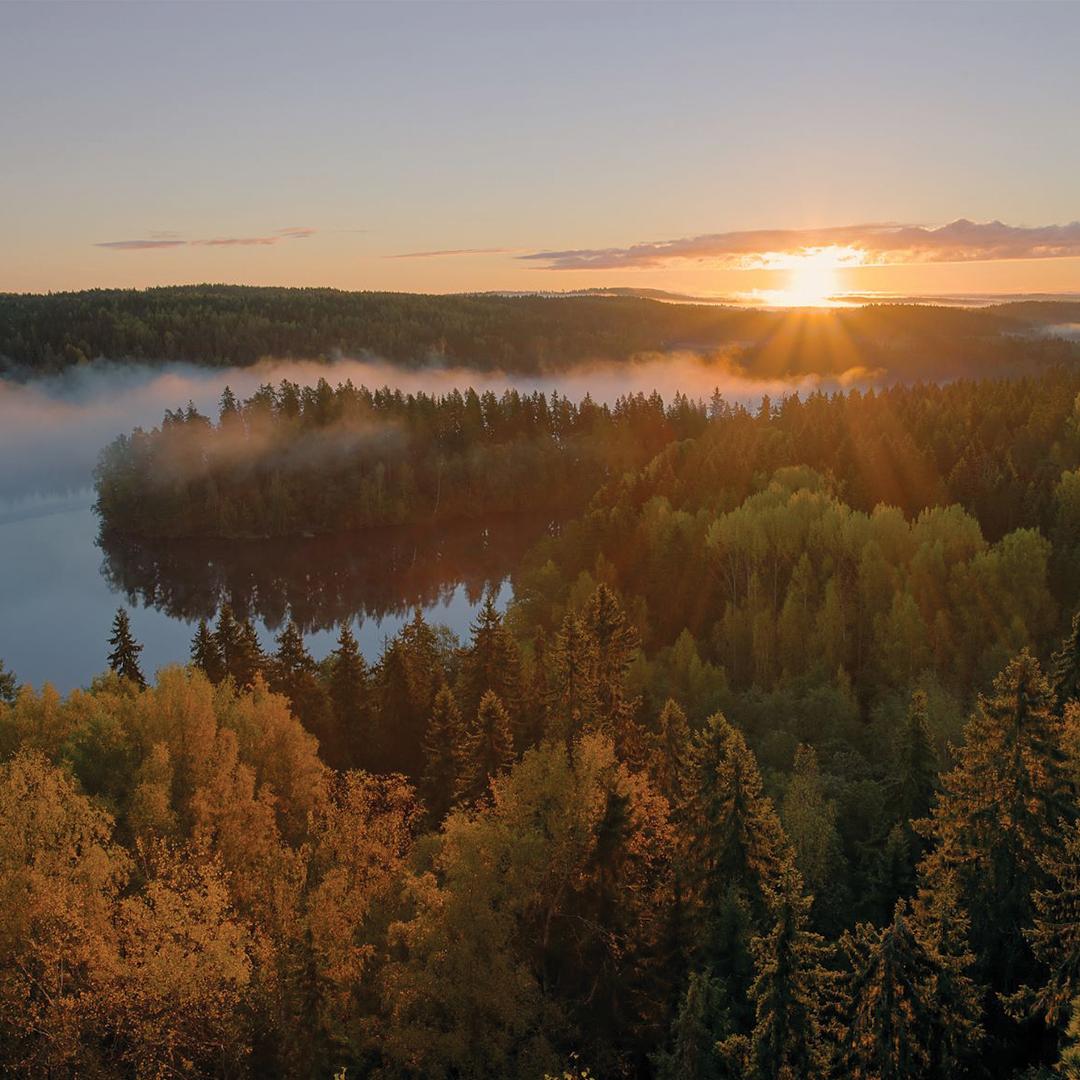40-year partnership boosted with a new sustainable investment
The over 40-year partnership with the steel company Ovako has not only led to energy savings and developed industrial processes. It has also led to prominent technical solutions at several industrial sites. At Ovako in Hofors, Sweden, where Adven has been recovering waste heat for a long time, a new hydrogen plant was inaugurated in autumn 2023, that was celebrated by Sweden’s Minister, Ulf Kristersson. Also from the hydrogen plant, Adven will soon be able to make use of residual heat.
“The hydrogen equipment suppliers said it was not possible. They thought they were done investigating the topic,” adds Ovako’s hydrogen technician Torbjörn Skoglund.
Sweden’s Prime Minister Ulf Kristersson at Ovako’s inauguration of the world’s first fossil-free steel plant before rolling. The addition adds to the already long-standing collaboration with Adven, that now will be able to recover waste heat from the electrolysis plant.
Ovako is a leading European manufacturer of engineering steel for customers in the transport and manufacturing industries. They have operations in Europe, North America and Asia, and the energy cooperation with Adven covers three out of five of their locations in Sweden. For 40 years, the companies have collaborated in the steel industries in Hällefors, Boxholm and Hofors, where the newest solution has just been implemented.
“We have had a good collaboration with Ovako in several locations for many years. But now that we managed to crack the code for recovering residual heat from the hydrogen electrolysis plant in Hofors, I think both parties were extra proud,” says Erik Gynt, CEO of Adven Hofors.
In general, for steel production, large amounts of heat from cooling water and hot exhaust gases from various types of furnaces can be used instead of being cooled away into the air or nearby watercourses. Adven has been able to use a large proportion of the residual heat that was previously wasted at Ovako to heat homes and premises instead. The residual heat adds no carbon dioxide footprint, which means that the district heating can maintain a low carbon dioxide footprint in several locations where Ovako and Adven collaborate.
Ovako Hofors first with hydrogen for steel production
The steelworks in Hofors have been an integral part of the city since the 1500s and today the factory in Hofors is the company’s focal point with production in steel and rolling mills as well as pipe and ring mills. The cooperation with Adven in Hofors began in 2002, where both parties realized that the residual heat from the industry could create value for Hofors and instead be used to supply district heating to the city. The fact that Adven’s district heating plant continues to be in the Ovako industrial area illustrates how closely the companies have worked together since the start.
“We are in such close contact with Adven and we are not afraid to ask questions, nor do I think they are. We have more or less complicated common Excel sheets everywhere,” says Ovako’s Torbjörn Skoglund.
Part of Ovako’s industrial process in Hofors consists of rolling steel products, a process that requires heating at temperatures up to 1200 degrees Celsius. Previously, LPG was used, which is considered a fossil fuel. When Ovako succeeded in finding a fossil-free heating solution in the autumn of 2023 based on hydrogen instead, it became the first hydrogen plant in the world to heat steel before rolling. Here, new doors opened for the collaboration.
Partnerships solve difficult challenges
When the engineers at Adven and Ovako meet and put their heads together, new ideas often come to fruition. That’s how the idea was born, of recovering energy from Ovako’s new electrolysis plant that will produce hydrogen. Lars Sjökvist is one of the engineers at Adven who was involved in cracking the idea, when figuring that residual heat from an electrolysis plant should also be recoverable, even if it is not conventional.
“The hydrogen equipment suppliers said it was not possible. They thought that they had done their investigation and that it was not possible to make use of the residual heat from the hydrogen plant, says Torbjörn Skoglund. He laughs and continues, Lars had a big part in cracking the solution, he didn’t give up”.
Discussions about making use of the residual heat from the electrolysis plant began as early as 2021 and has been a challenge for both companies technically. The technology is not yet very common, and the difficulties have been to get the residual heat from the plant to reach sufficiently high temperatures to be connected to the district heating system. Through the close cooperation, Adven has been involved in the development at an early stage and has therefore been able to influence the design of the solution. This has helped to adapt the solution to the district heating network from the start.
Photo: Ovako. Ovako’s electrolysis plant is the largest in Sweden with 20 MW of electrical power. In addition, the hydrogen is produced with fossil-free electricity.
The work to connect the residual heat from the electrolyzers to the district heating network has been under construction in 2023 and the solution will soon be in operation. With residual heat from several parts of the industrial process, the spread of risk is further broadened in the fuel mix for the district heating in Hofors, Sweden.
“We are closely following developments in the field of hydrogen, both at Ovako and other players. We are located in 6 countries and are interested in making use of residual heat from more hydrogen plants in the future,” says Erik Gynt.

 Newsletter
Newsletter